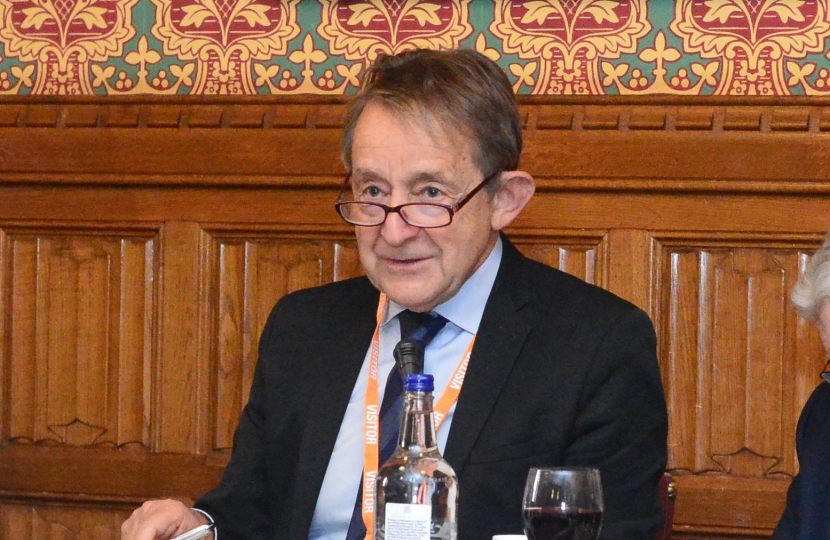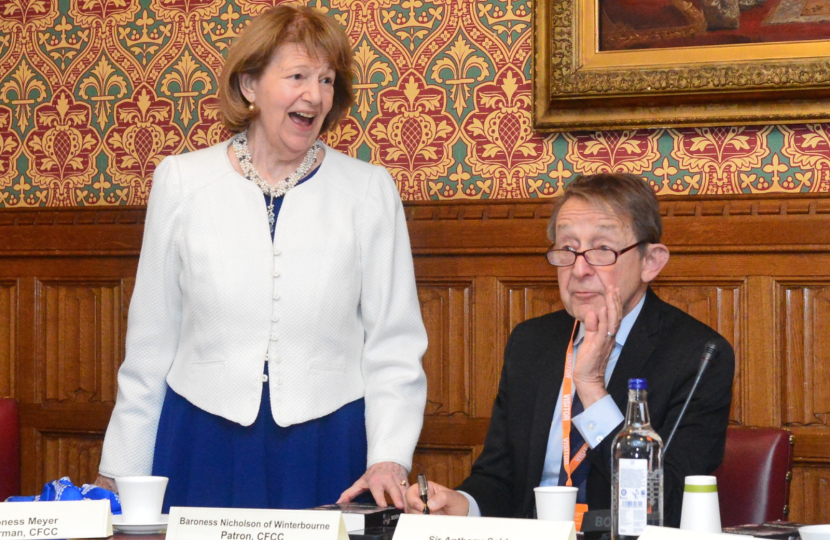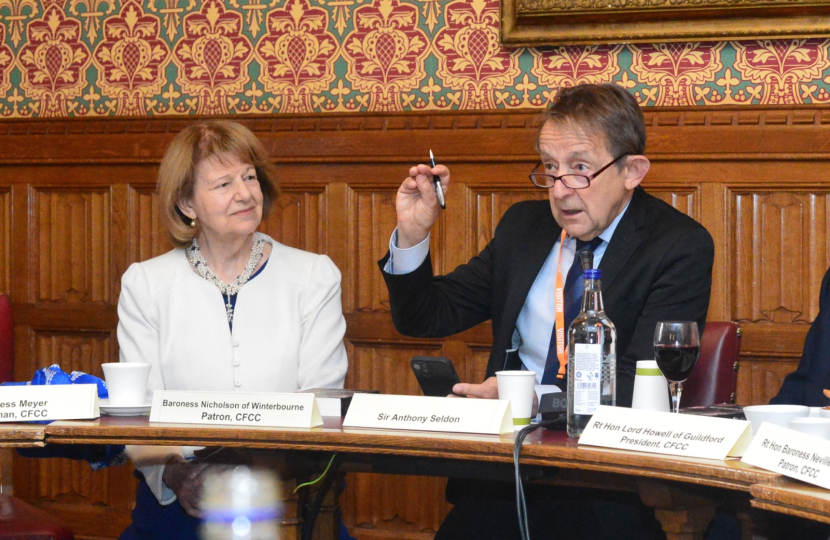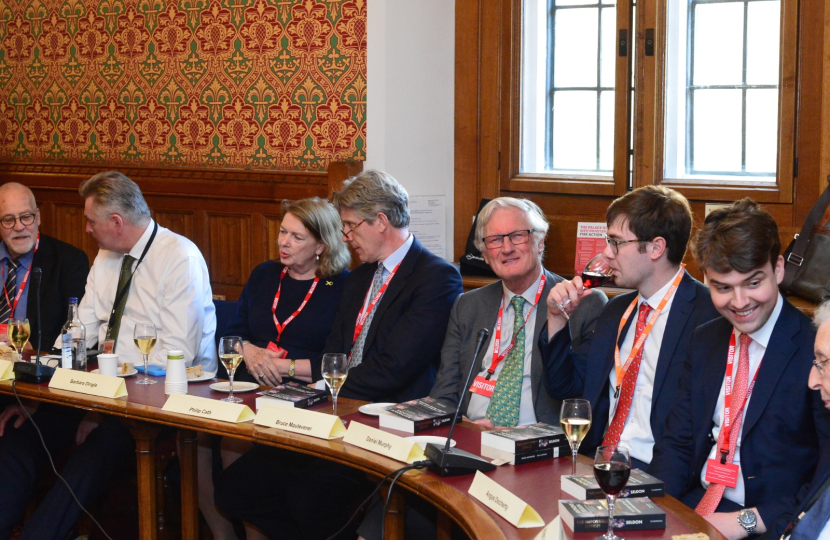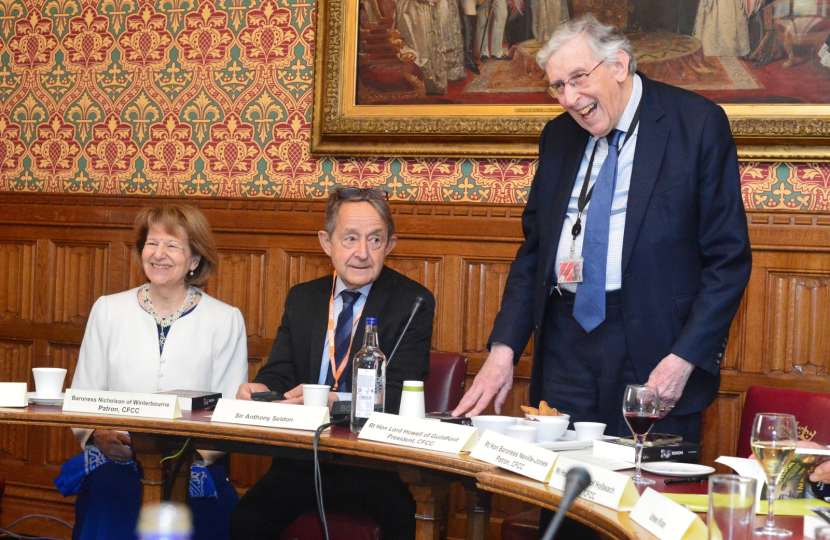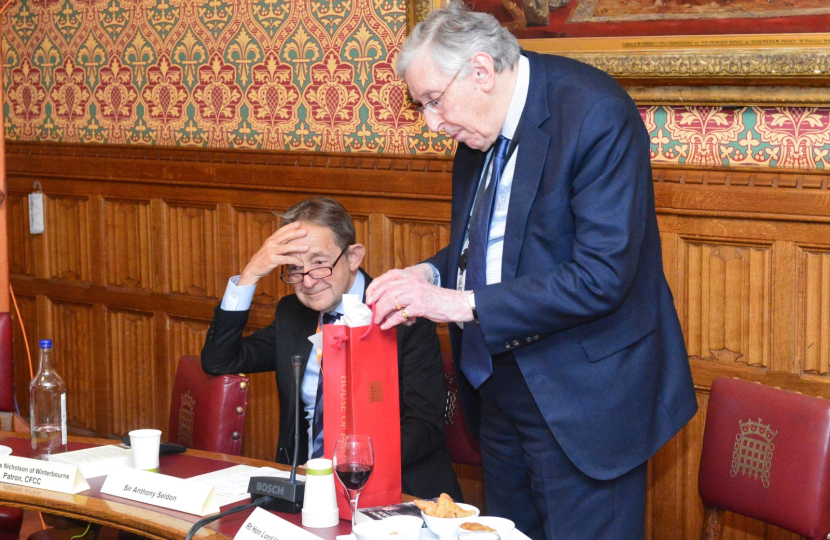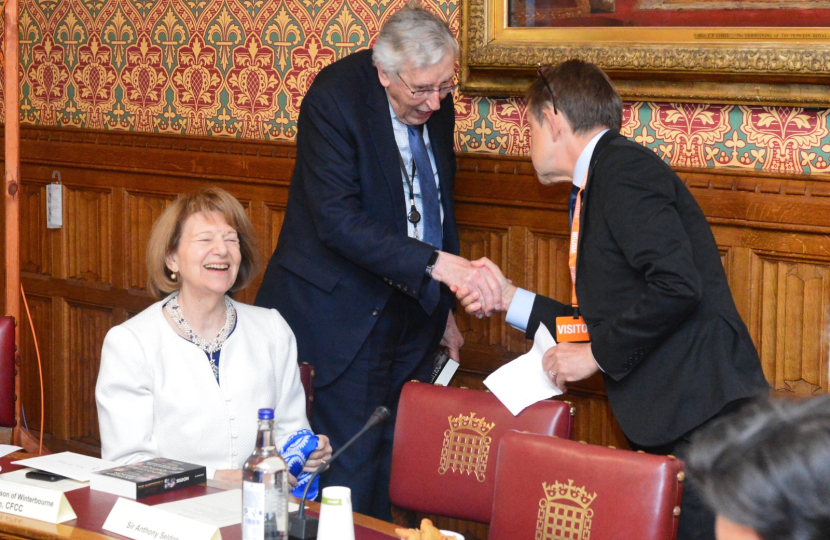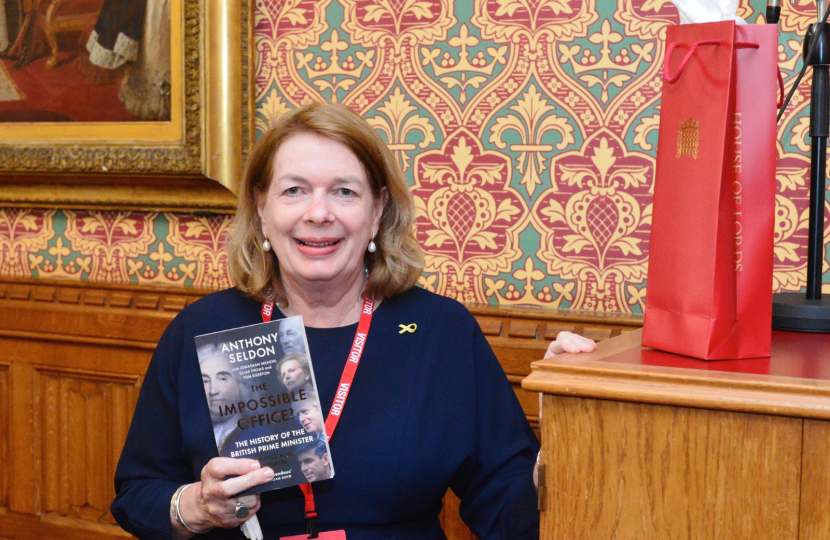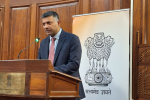‘Members of the Conservative Foreign & Commonwealth Council (CFCC) attended a talk at the House of Lords on Monday the 19th May by Sir Anthony Seldon, the acknowledged national authority on all matters relating to Number 10 and British prime ministers.
Sir Anthony was introduced by Emma, Baroness Nicholson of Winterbourne, a Patron of the CFCC who herself has served under a number of prime ministers both as an MP, an MEP and as a member of the House of Lords. She expressed her admiration in particular for Lady prime ministers and noted the Labour Party has yet to produce a female leader.
In a brilliant analysis Sir Anthony tracked the gradual loss of influence and power of British Foreign Secretaries to the Prime Minister of the day as the role of a PM developed (under Disraeli originally). Over 17 minutes Sir Anthony focused on 15 key dates starting with Pitt the Elder, later Lord Chatham, who in 1763, had overseen victory in the seven years’ war and an expansion of British global influence. The role of the prime or leading government minister was then predominately domestic.
1782 saw the signing of the Treaty of Paris and independence from Britain for America. Charles James Fox Britain’s first official foreign minister, had been supportive of the revolt against British colonial rule, Lord North, the ‘prime’ minister had been against. They later allied over the abolition of the slave trade and Pitt the Younger became their bitter rival.
The next date was 1812, when Napoleon was defeated at Waterloo. Lord Castlereigh was the Foreign Secretary and Lord Liverpool prime minister. The victory provided kudos for Castlereigh but also for Liverpool.
Sir Anthony’s next date was 1850. Much happened that year. The combative all- powerful Lord Palmerston was Foreign Secretary whose gunboat diplomacy’ was to protect British Citizens. ‘Civis Romanus Sum’ was quoted by him in the infamous ‘Don Pacifico case’ when he threatened to bombard Greece. His actions were very much at odds with the wishes of his far more cautious PM, Sir John Russell.
The next date was 1871. William Gladstone was now PM and Lord Granville, Foreign Secretary, was required by Gladstone to adopt a less aggressive approach to foreign affairs than had been the case under Palmerston.
By 1873, underwater cables led to easier communication between the PM and his opposite number in North America and 1878 saw the introduction of the telephone, invented by Alexander Bell, which accelerated a greater involvement by a PM within the areas more normally associated with the responsibility of a Foreign Secretary. That year saw the signing of the Treaty of Berlin.
1919 was the next date with the signing of the Treaty of Versailles signifying the end of the Great War. Lloyd George was the domineering PM with Lord Curzon as his experienced and able Foreign Secretary. Curzon’s ideas however were often often thwarted or overruled by the PM.
In 1938, with the end to peace in Europe looming, Chamberlain was PM. His Foreign Secretary, Eden, resigned over appeasement policies to be replaced by Lord Halifax. Eden’s role could be compared with that of Edward Grey both being foreign secretaries during a lead up to world wars.
1940, The Darkest Hour. The Battle of Britain, Churchill in command and Eden back again as Foreign Secretary.
1949 found Clement Attlee and Ernest Bevin as PM and Foreign Secretary (FS) respectively working well together. Bevin a fervent Atlanticist was much involved with the formulation of NATO and supporter of the Marshall Plan. Attlee pushed for India’s independence and the creation of the Commonwealth.
1952 Churchill and Eden back again as PM and FS respectively and the death of the King.
Eden succeeds Churchill in 1955 and oversees the 1956 Suez disaster as a former foreign secretary. He resigns in 1957 and is succeeded by Harold Macmillan as PM with Selwyn Lloyd his Foreign Secretary who is beholden to ‘Supermac’ as the press branded MacMillan overseeing the granting of independence for African countries from Britain: ‘the winds of change’.
1964, the next date was a tumultuous year. Harold Wilson became PM with the PM’s office well in control of Foreign Policy over Richard Crossman, the Minister.
1973 saw Edward Heath as PM and Alec Douglas-Home at the Foreign Office. Relations were smooth and led to the UK applying for and becoming a member of the European Economic Community.
Later dates on the list were 1983; Thatcher and Geoffrey Howe, who succeeded Peter Carrington (Foreign Minister during the Falklands war). In 1999, Tony Blair became PM. His chief of Staff, Jonathan Powell and his Political adviser, Alastair Campbell, ensured his hands on foreign affairs and UK involvement in the Gulf wars. To this day foreign affairs have remained firmly in the hands of the PM.
Sir Anthony completed his historical expose of the subject matter right on time he had promised thereby allowing for many detailed questions.
The conclusions drawn from the answers were that those who had emerged as leaders had not always held the intellectual ability necessary for the complicated choices they had to make, nor the sense of history, human understanding and vigour necessary for office - too many mistakes had been made and of the foreign secretaries who became prime ministers few proved to be suitable. Anthony Eden being an example of this.
Lord Taylor of Holbeach, CFCC’s former Chairman and current Patron reflected on the betrayal of access to Europe and Lord Howell of Guildford, CFCC’s President, in thanking Anthony Seldon for his superb talk referred to the often lack of understanding within governments. Root and branch reform of the civil service was needed.
Thanks to Melissa Crawshay-Williams and her team for arranging for CFCC members to enjoy such a stimulating and interesting evening.
William Knight
27.05.2025

